What is our primary use case?
We use it for vulnerability management. We have the latest version because we're using it in the cloud right now. I have a public cloud and a private cloud version.
How has it helped my organization?
When we do our scans, I'm able to give full reports of what's vulnerable per device. I could group them and say, "Hey, here's a vulnerability in the infrastructure. Here's all the host that needs to be addressed," by showing the report. When I give a report or a request for change, I would include the report so that they are undisputed. Instead of the sys admins giving the excuse of, "Hey, we don't have enough time," or, "We've already done it," or some other poor excuse, now I have a report behind it that says, "Hey, you're vulnerable with this. Here's the CVE, and here's the POC of the CVE," and then if I want to be a little bit more obnoxious, I provide them the POC that I ran with the proof that the POC is there, and then I'm able to say, "Hey, you need to patch this now."
My executives now are able to say, "Hey, you know what? The ISO gave you a directive to patch this with proof. Why haven't you done it?" Because now, as we know, all C-levels are ultimately responsible. If you have an ISO that is interfacing with sys admins saying, "Hey, here's a change that you need to patch it. Here's my proof that even has POC with proof and the report," then there is no benign, "Why haven't you done it?"
What is most valuable?
I like its ease of use. It has the script that is pre-built in it, and you just got to know which ones you're looking for.
What needs improvement?
The price could be more reasonable. I used the free Nessus version in my lab with which you can only scan 16 IP addresses. If I wanted to put it in the lab in my network at work, and I'm doing a test project that has over 30 nodes in it, I can't use the free version of Nessus to scan it because there are only 16 IP addresses. I can't get an accurate scan. The biggest thing with all the cybersecurity tools out there nowadays, especially in 2020, is that there's a rush to get a lot of skilled cybersecurity analysts out there. Some of these companies need to realize that a lot of us are working from home and doing proof of concepts, and some of them don't even offer trials, or you get a trial and it is only 16 IP addresses. I can't really do anything with it past 16. I'm either guessing or I'm doing double work to do my scans. Let's say there was a license for 50 users or 50 IP addresses. I would spend about 200 bucks for that license to accomplish my job. This is the biggest complaint I have as of right now with all cybersecurity tools, including Rapid7, out there, especially if I'm in a company that is trying to build its cybersecurity program. How am I going to tell my boss, who has no real budget of what he needs to build his cybersecurity program, to go spend over $100,000 for a tool he has never seen, whereas, it would pack the punch if I could say, "Let me spend 200 bucks for a 50 user IP address license of this product, do a proof of concept to scan 50 nodes, and provide the reason for why we need it." I've been a director, and now I'm an ISO. When I was a director, I had a budget for an IT department, so I know how budgets work. As an ISO, the only thing that's missing from my C-level is I don't have to deal with employees and budgets, but I have everything else. It's hard for me to build the program and say, "Hey, I need these tools." If I can't get a trial, I would scratch that off the list and find something else.
I'm trying to set up Tenable.io to do external PCI scans. The documentation says to put in your IP addresses or your external IP addresses. However, if the IP address is not routable, then it says that you have to use an internal agent to scan. This means that you set up a Nessus agent internally and scan, which makes sense. However, it doesn't work because when you use the plugin and tell it that it is a PCI external, it says, "You cannot use an internal agent to scan external." The documentation needs to be a little bit more clear about that. It needs to say if you're using the PCI external plugin, all IP addresses must be external and routable. It should tell the person who's setting it up, "Wait a minute. If you have an MPLS network and you're in a multi-tenant environment and the people who hold the network schema only provide you with the IP addresses just for your tenant, then you are not going to know what the actual true IP address that Tenable needs to do a PCI scan."
I've been working on Tenable.io to set up PCI scans for the last ten days. I have been going back and forth to the network thinking I need this or that only to find out that I'm teaching their team, "Hey, you know what, guys? I need you to look past your MPLS network. I need you to go to the edge's edge. Here's who you need to ask to give me the whitelist to allow here." I had the blurb that says the plugin for external PCI must be reachable, and you cannot use an internal agent. I could have cut a few days because I thought I had it, but then when I ran it, it said that you can't run it this way. I wasted a few hours in a day.
In terms of new features, it doesn't require new features. It is a tool that has been out there for years. It is used in the cybersecurity community. It has got the CV database in it, and there are other plugins that you could pass through. It has got APIs you can attach to it. They can just improve the database and continue adding to the database and the plugins to make sure those don't have false positives. If you're a restaurant and you focus on fried chicken, you have no business doing hamburgers.
For how long have I used the solution?
I've been using Nessus for about eight years.
What do I think about the stability of the solution?
Internally, it is stable. Externally also, from what I've seen, it is stable. The only problem that I've had with it was if you have a network and internet blip, you get disconnected, but that happens with anything. Right now, I would say that a lot of cloud companies are having problems because COVID has got a lot of people working from home remotely in VPN. This is the biggest problem we have. You went from 35 people using VPN to over 2,000 people using VPN. You're trying to go to a cloud that wasn't set up for VPN, or you don't have the necessary routes or bandwidth to it. The average person is going to say, "This cloud application sucks." It doesn't really suck. It means that you don't have enough bandwidth in your infrastructure.
What do I think about the scalability of the solution?
We haven't had to scale it yet. We haven't scaled internal Nessus because we have our own version of it. I'm not sure how many IP addresses we're feeding, but I know we only have one server. I looked at the processes, and it's only doing 50% of the process.
We have 13 people who are capable or licensed to use it, which would be all of our risk management information, information security, and risk management office, but I would say only half or about six of us are actually using it daily.
How are customer service and technical support?
I've used the tech support a couple of times. I would say they are very good because they were able to say, "Hey, let's stop the chatting. Let's get on a Webex, and we will Webex you and ask the questions directly." They were able to get to the engineers on the Webex at the same time, and within 30 minutes, they solved our problem. I would rate them a ten out of ten.
How was the initial setup?
If I was installing Nessus just by itself, it is straightforward simply because I've done it before. If you're setting up Nessus from the cloud version, there's a little bit more to it because, for one, it's in the cloud version, and you got to open up ports for your network. You got network people who get all scary because they don't understand what you're doing. Other than that, once you get it set up, then it is pretty much straightforward.
What's my experience with pricing, setup cost, and licensing?
Nowadays, your vulnerability applications are going to be kind of pricey because lots of them, including Rapid7, are based upon a base price, but then they add in the nodes. That's where they get you. If you're a big network, obviously, you need to scan everything. Therefore, it's going to be costly.
The risk and insurance money associated with having ransomware on my networks is going to cost me more money, time, and marketing than the price of the tool. That's why I'm speaking only as an information security officer to security operations. This is the tool that is there in my toolbox to say whether we vulnerable or not. At this point, I don't care about how much it costs my company to have it because if I wasn't able to report it and we got ransomware, then who cares? I'm probably going to be out of business because it happened. That's why I don't care about the price. I have it, and I could use it effectively and do my report. At the end of the day, even if we get ransomware, as long as I reported it, followed my protocol, and put in the change, irrespective of whether it was ignored or denied, I did my job.
What other advice do I have?
The advice would be definitely doing your proof of concept because that's what you're going to need for your buy-in for your upper management because it is going to cost some money. I would do a hybrid version, where your own Nessus is internal, and then you have your cloud. If you lose connection to the internet, you could still run an internal Nessus scan to save the scan and then input the scan into Tenable.sc. Do your proof of concepts, get your reports, and use your proof of concepts when you do your presentation to upper management to purchase. If you use your own nodes and your own network as your proof of concept, it gives them an eye view of, "Hey, we're vulnerable because of this, and here's the tool that did it." To me, that was a better selling point because it was real. It wasn't the demo data. Once you have purchased it and get it all set up, use it continuously, meaning include your scanned reports with your change control. This way, it shuts all the administrators who have been there over 20 years and say, "Hey, I don't want to patch right now because it takes the network down." Yes, it's going to take the network down. However, the longer you wait, the more vulnerable you are because if I'm doing change requests every week, and I'm calling on more and more risk and you start to find the same nodes in the same reports, then somebody up high is going to say to the network administrator guy to fix it.
I would rate Tenable Nessus a ten out of ten right now. If you had asked me last year, Rapid7 would have been the same and on top, but now that I've been using Tenable and I'm comparing the jobs that I'm doing right now, Tenable is cut and clear to what the report is saying. My favorite report is the VPR report. Instead of just looking at CVS numbers, it has a VPR report that ranks, whereas, in Rapid7, it's just focused on CVS. It is CVS version 2 or 3, which kind of gets confusing. For example, in Tenable, I can run a scheduled scan and have my report, but let's say, for instance, I did patching in the middle before my scheduled scan. I could kick off a new scan specifically for that vulnerability and get a report, whereas, in Rapid7, you could not easily do that. Therefore, you were stuck waiting for the scan to go again and to see if your mitigation efforts fixed it.
Disclosure: My company does not have a business relationship with this vendor other than being a customer.









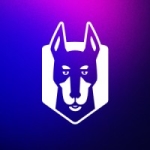


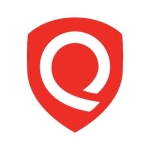

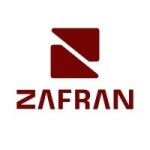
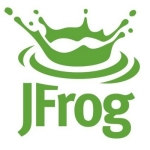


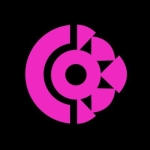



Easy to deploy and use, stable, and scalable.